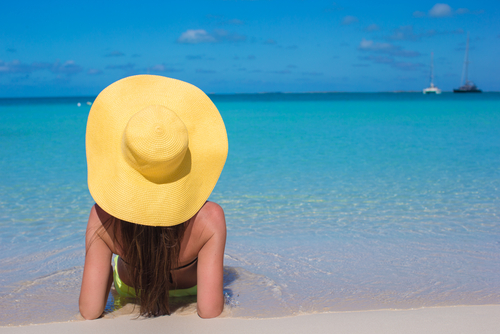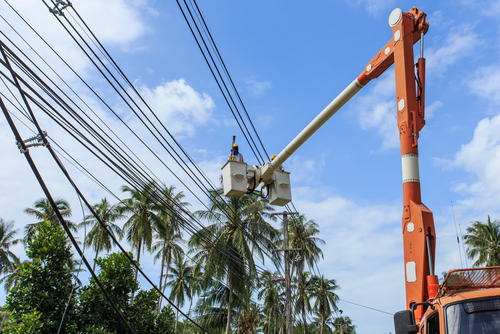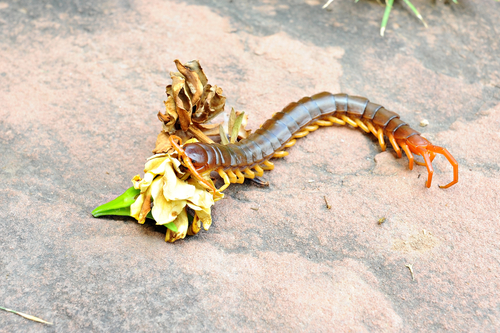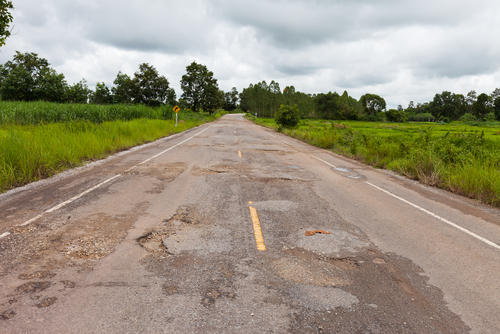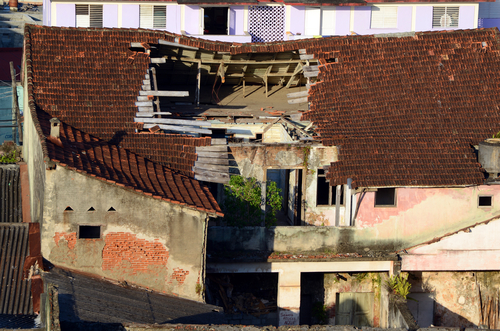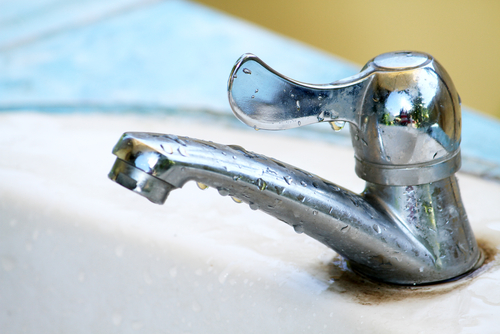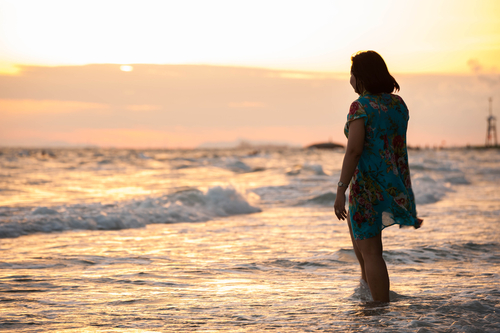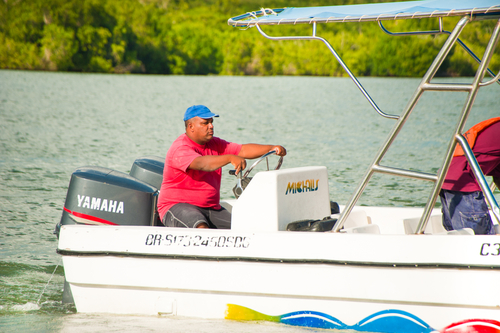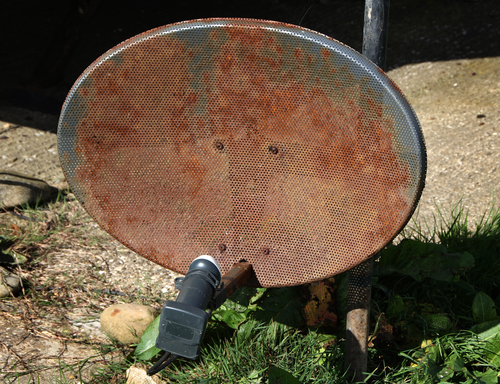At some point in time, usually while in the throes of a blissful tropical vacation, nearly everyone has fantasized about packing it all in and moving to paradise. You’re thinking how great it would be to feel the sand between your toes every day, and wake up to the sound of waves crashing outside your window, right?
Well I’m here to tell you that living full-time on a Caribbean island is a lot different than going there for a week on vacation. When you’re on holiday, you’re living in a state of unreality, where worldly problems don’t exist. Maids clean up after you, you can have margaritas for breakfast, and everything you need can be crammed into a single suitcase. But when you’re trying to live a normal day-to-day existence, things aren’t quite as blissful. The traffic, the corruption, the cost of living and the scary insects can really put a damper on your lifestyle.
Obviously each island is a little different than the next, and not all of the problems below are found on every island. But here’s a good general idea of what you’re getting yourself into if you decide that moving to the Caribbean is on the agenda.
Electricity is often expensive and not always reliable
Exorbitant rates can put a huge dent in your budget, especially if you like to run the air conditioning a lot. And if you live on an island with shoddy infrastructure, blackouts might occur as often as once a week, which is not great if you’re dependent on a computer and modem to make a living, for example, or just need to do ordinary things like charge your phone, take a shower (see #9), or wash your clothes.
The insects are ridiculous
Living in the Caribbean involves co-existing with all manner of creatures — and I’m not just talking about mosquitoes. Many of them will end up in your house. You may find frogs in your shower, small snakes under your couch, giant iguanas sunning on your patio, centipedes in your kitchen cabinets, and beetles the size of cell phones crawling up your window screens. If you’re at all squeamish about bugs and other creepy-crawlies, the Caribbean is NOT the place for you.
Everything costs twice as much
It costs more to transport goods to an island, as they must come by air rather than ground transit. These costs are passed on to consumers, who pay one-third to 2x as much for groceries, clothing, gasoline, and other necessities. Rents and property prices are also high, since there is more demand than supply. This not only impacts consumers, but also those trying to run a business: overheads are sky-high, and many close after only a year or two because the owner under-estimated how much it would cost to keep the business afloat. The only things that are cheap in the Caribbean: booze and sunshine.
Limited selection of products/stores
Think you’ll be able to pop down to Starbucks on Sunday afternoon for a latte? Fat chance. Think you’ll be able to call the “other” branch of that shoe store, if they don’t have your size in the first branch? Nice try. Wanna make that exotic recipe you’ve been dying to try, which requires yuzu juice, Israeli sea salt and balangal? Good luck with that. Some islands have a smattering of name-brand stores or gourmet markets in touristy areas, but most likely you’ll have to adapt to local boutiques, coffee shops and brands – or order your favorite stuff via mail. Which may or may not be possible, because many merchants don’t deliver to the Caribbean!
There’s not much to do
This is especially true on smaller islands, where there is simply not enough population nor infrastructure to support the social and leisure activities you may be used to such as shopping malls, amusement parks, sports complexes, arts/cultural centers, and social clubs. Most islands have one or two of the above – maybe one golf course and one small theatre venue – but most locals get by with a much more limited version of social life, which involves barbecuing on the beach, listening to live music in a beach bar, or hanging out at friends’ houses. If you like the beach, bars, and barbecuing and don’t mind doing that EVERY weekend, you’ll be fine. But if you crave variety, you’ll go stir crazy pretty fast.
Bad roads and potholes
In touristed areas roads are generally well-kept, but in areas where visitors never tread they can be quite bad. Be prepared for close encounters with farm animals, loose gravel, and potholes, which are huge and ubiquitous (one particularly large one I encountered is nicknamed “the swimming pool”). This really wears out your car’s tires, brakes, and suspension, especially if you live on an island that’s also hilly, which puts an equivalent strain on your budget. And don’t forget traffic lights can be non-existent or ill-timed, which leads to ugly traffic jams in otherwise beautiful, pristine places.
Hurricanes
There are some islands that have less chance of being hit than others (notably Aruba, Bonaire and Curacao), but the rest live in a state of constant fear from June through November. When hurricanes do hit, business are destroyed, houses severely damaged, roads are flooded, and power can be out for weeks. The economy can take years to recover. Need I say more?
Tropical diseases
In the Caribbean, mosquitoes transmit lots of nasties such as dengue fever, chikungunya, malaria, and yellow fever (not all are found on every island, though). These are not pleasant illnesses to suffer through. There’s a reason that dengue is called the “bone crushing disease” – it makes you feel like your bones are being pressed by a vice, and the pain behind your eyes can be intense. And did I mention ciguatera? Look it up. You’ve been warned…
Water is not limitless
On many Caribbean islands, houses are not connected to a central municipal water supply, but rather collect water via rainwater cisterns, and dispose of it via septic system. This all sounds very eco-friendly, but there are drawbacks: you can’t drink cistern water, and you have to ration your usage carefully so you don’t deplete it. If you do run out, you have to pay to get water delivered by truck (or pray for rain)! And if the power goes out, so does the septic pump. Which means you can’t flush your toilet during a blackout. Fun times!!!
Island time
Need something done in a hurry? Don’t count on it in the Caribbean. From getting your car repaired, to getting a tax refund, things can take weeks, months or even years to happen. So if you’re into punctuality and efficiency, the Caribbean is a bad match for you. However, if you’re able to borrow a friend’s car for a few weeks while you’re waiting for parts for yours, then you’ll be just fine.
Corruption and bureaucracy are rife
Of course not all Caribbean islands have these issues, but a surprising number do. Getting a driver’s license, building permit, or health certificate can be an exercise in endless queuing, hair-pulling and teeth-gnashing, especially if you find that the only way to get things done is by lining the pockets of officials who have the power to approve or deny what you seek. On a macro level, many elected officials are not particularly interested in actually serving the people who vote for them, but in helping out their cronies and living a cushy life on the government’s dime.
Limited social circles
This one is somewhat related to #5. In addition to not having many entertainment facilities, there are not that many actual people to hang out with, especially on the smaller islands of 100,000 people or less. Unless you are the type of person who can get along with absolutely anyone, it can be tough to find like-minded people who share your interests, opinions and values in such a small pool of possibles. Especially if you’re on an island where locals don’t like to mix with transplants, which even further reduces your pool of potential friends.
Limited career opportunities
In the same way that there are limited social opportunities, small islands also equate to limited professional opportunities. Unless you are in a big city like Kingston, or a financial center like the Cayman Islands, white-collar jobs are hard to come by. Hospitality jobs are more plentiful, so if you’re a cook or boat captain you’re probably OK. Blue-collar jobs such as construction or auto repair are also available, but tend to be given to locals before outsiders are considered.
Relentless heat and sun
Warm weather and sunshine are the number one and two reasons why people fantasize about moving to the Caribbean, but most are woefully naïve about the effects of heat, humidity, and sun on the body. If you don’t drink water constantly throughout the day, you’ll get heatstroke, which happens to every newbie in the first few months — until they get used to carrying water with them at all times. The heat and humidity also make exercising outdoors during the middle of the day nearly impossible, unless you like to pass out. And fair-skinned people often underestimate how powerful and damaging the sun’s rays are: skin cancer and sunburn are common afflictions. Moral of the story: sun and heat are nice, but also dangerous and not to be messed with.
Mold, salt and tarnishing
This one flows from #14. In climates that are always warm and damp, mold and fungi thrive, and the salty air is corrosive. So forget about bringing (or buying) expensive carpets, appliances, fabrics or jewelry: within a year it will all be ruined. Carpets get moldy, fabrics disintegrate from exposure to sun and air, and any kind of jewelry or shiny finish soon gets brown and corroded.
Want to discover the finer side of Africa? Sign up for our weekly newsletter.
